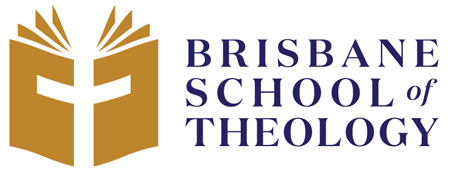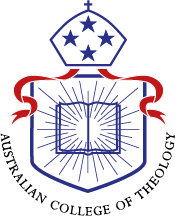Our Courses
Bachelor of Theology
UNDERGRADUATE
- 24 Units
- 3 yrs FT | up to 9 yrs PT
- 288 Credit Points
- FEE HELP
- OVERSEAS
Course Description
If you’re looking to get serious about in-depth biblical study, and this is your first undergraduate qualification, then the Bachelor of Theology is exactly what you need.
It begins with an overview of the entire biblical text, giving you a great framework as you move into more detailed analysis of key sections. You’ll have a chance to study the Bible in the languages it was originally written in; you can get a better understanding of the history and purpose of the church; and you’ll be getting to grips with major theological doctrines of grace, eschatology and even God Himself. You can then choose the areas in which you want to dig deeper, such as the biblical languages, pastoral ministry, preaching, or biblical studies.
Where can this course take you?
- Church pastoral roles
- Local and international mission work
- Church planting
- Chaplaincy/pastoral care roles
Most churches are quite happy that the Bachelor of Theology fulfils all the academic requirements for ordination, although a small amount of denomination-specific training might still be expected from some. Ministry organisations will also recognise this degree program as excellent preparation for mission work, particularly if you’re interested in a role that involves Bible teaching.
- Introduces students to the sources and content of the Christian story and message, and provides training which emphasises application and articulation of this story and message in the contemporary world.
- The course will concentrate on the disciplines by which knowledge of God is developed and articulated in two main fields:
- Bible & Languages (LA, OT, NT, BB)
- Christian Thought & History (TH, CH, PE)
- A course in theology provides a grounding for ministry by establishing a foundation in theological knowledge and reflection.
- Through elective units students can:
- Follow study tracks in Bible & Languages and in Christian Thought & History
- Develop practical ministry skills (EM, PC, DM)
ATAR: Completion of Year 12 in the last two years with an ATAR 65 or above; OR
Previous Qualifications: Successful completion of a qualification at AQF Level 5 or above; OR
Demonstrate Academic Suitability for course: Test, Brief Essay, or Interview.
Language Qualifications for NESB: IELTS 6.5 overall with minimum of 6.0 in each subtest OR 10 years in Australia with English being the language primarily spoken both at home and work.
Australian College of Theology Coursework Course Enrolment Policy
24 units | 288 credit points | 3 yrs FT, up to 9 yrs PT | On-campus & off-campus live stream
Bachelor of Theology Course Structure:
2 units from Old Testament Introduction
2 units from New Testament Introduction
5 units from Christian Thought (2 from History, 3 from Theology)
2 units of Language (same language)
3 units from Exegesis (2 in original language)
4 units from either Exegesis, Biblical Languages or Christian Thought
1 unit of Spiritual Formation for Professional Ministries
1 unit of Field Education
4 elective units
Units in this course are completed at Level 5 and above, course must include no more than 12 units at Level 5, and including at least 6 units at Level 7 or above. Units codes ending in 512 = Level 5, 612 = Level 6, 712 = Level 7.
Below are the units you can choose from each catergory.
Biblical Introduction
Old Testament introduction
Old Testament Foundations – OT001-512
Old Testament Prophets and Writings – OT002-512
New Testament introduction
Jesus and the Gospels – NT001-512
Early New Testament Church – NT002-512
Christian Thought
History
Christianity in History to 1550 – CH001-512
Christianity in History from 1550 to Modern Times – CH002-512
Theology
The Knowledge of God – TH001-712
Creation and the Fall, the Person and Work of Christ– TH102-712
The Doctrines of Grace and Eschatology – TH003-712
The Church and its Ministry– TH104-712
Philosophy & Ethics
Christian Ethics – PE001-512
Christian Apologetics – PE206-712
Exegesis
Old Testament exegesis
Pentateuch – OT008-712/OT009-712 (Hebrew exegesis available)
Former Prophets: 1 & 2 Samuel – OT010-712/OT011-712 (Hebrew exegesis available)
Exilic Prophecy (Isaiah 40-55) – OT014-712
The Psalms OT020-712
New Testament exegesis (in English or Greek)
The Synoptic Gospels: Luke – NT008-712/NT009-712
The Fourth Gospel – NT016-712/NT017-712
The Pastoral Epistles – NT014-712/NT015-712
Pauline Theology and Romans – NT018-712/NT019-712
Paul and Corinthian Christianity – NT010-712/NT011-712
Ministry & Practice
Evangelism and mission
Mission Perspectives – EM001-512
Principles of Evangelism – EM024-512
Ministry in a Culturally Diverse Context – EM018-712
Contextual Asian Ministry – EM031-712
Cross-Cultural Field Education – EM040-712
Pastoral and church-focused ministry
Pastoral Skills and Methods– PC003-712
Preaching I – PC047-712
Spiritual Formation for Professional Ministry – PC008-712
Congregational Field Education – PC092-712
Practical Ministry Field Education – PC094-712
Child Abuse in Christian Communities: Prevention and Response – PC134-712
Languages
Biblical Hebrew (A) – LA003-612
Biblical Hebrew (B) – LA004-612
New Testament Greek (A) – LA005-612
New Testament Greek (B) – LA006-612
Note: Biblical Introduction, Church History and Greek A & B are offered every year, while the other units run on a two-year cycle. Please refer to the college timetable to find out what is being offered each year.
A full-time study load is 4 units per semester. You can be full-time and study 3 units per semester; it will just take you longer to finish the course. A part-time study load is 1 or 2 units per semester.
Course Rules
- Maximum concurrent enrolment load: 60 cps
- There is a pre/co-requisite for Level 7 units: 96cps, including 36cps at Level 6
Discipline Knowledge and Understanding
1. Demonstrate functional knowledge and understanding of ‘Theology’ as an academic discipline in the fields of ‘Bible and Languages’ and ‘Christian Thought & History’
2. Discuss the functional spiritual and ethical implications of biblical and theological knowledge and understanding
Inquiry and Analysis
3. Collect, analyse, evaluate and synthesize recognized biblical and theological scholarship in inquiry-based learning
Problem Solving and Integration
4. Construct evidence-based perspectives on functional biblical and theological issues by using recognized source materials and relevant scholarly literature, evaluating alternate interpretations and drawing reasoned conclusions
Communication
5. Present functional biblical and theological ideas, knowledge and principles to, and engage with, different audiences using a variety of formats
Teamwork and Professional Practice
6. As leader and in groups, apply functional biblical and theological understanding in formal ministry contexts and the wider community
Engagement With the World
7. Engage with the functional challenges of contemporary Christianity, society and the wider world
Continuous Learning and Professional Development
8. Demonstrate a capacity for independent reflection and learning to sustain personal and professional development in Christian life and ministry
BST Timetable, Calendar and Fees
This course is FEE-HELP and Centrelink approved.
What is FEE-HELP?
FEE-HELP is a loan that helps eligible fee paying students pay their tuition fees.
For eligibility and more information on FEE-HELP go to:
https://www.studyassist.gov.au/help-loans/fee-help
This course is registered on CRICOS (054676J) and is available to overseas students. Further information for overseas students can be found on our overseas student page.
Overseas students can apply here.
The Associate Degree is what you’ll be awarded if you begin the Bachelor of Theology program but for some reason can’t, or choose not to, complete it.
As long as you’ve gained 192 credit points (16 units) you can receive the qualification. If at some point in the future you want to continue your studies you may be able to pick up where you left off and those credit points will count towards your Bachelor (this is subject to time constraints, so you will need to speak to our registrar to discuss your options).
When you have completed the Bachelor of Theology you can continue your theological studies with either:
Honours Program
The Bachelor of Theology (Honours) program is designed for students who have graduated with a three-year undergraduate degree in Ministry from the ACT and who have demonstrated high academic potential. It will require a minimum 2.0 overall Grade Point Average. It is a means of preparing for advanced research in Ministry. It is an extra 96 credit points which you can complete over one year full-time or three years part-time.
Master of Theological Studies
John and Kathy Harris
Bible teachers and pastors (the Netherlands)
John: “The knowledge and skills I was given in theology and the Bible directly prepared me to teach Old Testament in Ukraine for five years, and they’re still with me now as I preach and teach in our church. Everything I learnt through the BTh continues to be so relevant as we now train the next generation of leaders, preachers and cross-cultural workers.”
Kathy: “Our faithful and dedicated teachers were an amazing example of Christian service that still inspires us in our ministry today. And one of our most positive memories of our years at BST is the great friendships we made with fellow students and staff. We’re still good friends with many of those people who now live and serve all over Australia and the world, and that network of friends is an incredible encouragement to us.”




